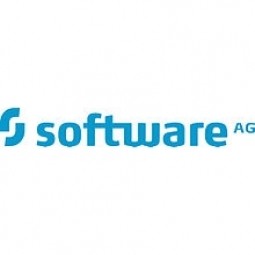下载PDF
ARIS Slashes Documentation Times at Evonik Industries
技术
- 应用基础设施与中间件 - API 集成与管理
- 应用基础设施与中间件 - 数据交换与集成
适用行业
- 化学品
适用功能
- 离散制造
- 质量保证
用例
- 预测性维护
- 过程控制与优化
服务
- 软件设计与工程服务
- 系统集成
挑战
Evonik Industries, a global industrial group, was facing challenges with its international operations. The lack of uniform representation standards and file formats for processes made it difficult to gain a cross-sectional view of the enterprise and prevented the development of a shared understanding of processes and process management. This became particularly clear when preparing for an SAP roll out in Greater China. The company was aiming for shorter documentation times and standardized process documentation, with the aim of reducing the number of process harmonization workshops to a minimum. The resulting documentation base would be used for future projects and help create a shared process understanding. The constant demand for training created an urgent need for comprehensive process documentation in China.
关于客户
Evonik Industries AG is a global industrial group that operates in over 100 countries. As of 2009, the company had revenues of 13.1 billion euros and a headcount of 39,000. The group’s activities in the fields of specialty chemicals, coal-fired and renewable energies, and residential property offer outstanding opportunities for profitable growth. Evonik is a global leader in the field of specialty chemicals. The company relies on SAP software to run its international operations.
解决方案
Evonik opted for the ARIS product portfolio to handle its SAP roll out more efficiently. The ability to use the same standard platform across all international locations, plus the intuitive way processes are displayed, convinced the company that ARIS would enable it to handle SAP roll out more efficiently. A further benefit was IDS Scheer’s global presence, which would ensure local support where needed. This was particularly useful in the case of the Tong Yi project in China, which was embedded in Evonik’s IT environment and supported by IDS Scheer China. All processes were documented using ARIS Design Platform and linked to SAP Solution Manager transactions. The integration with SAP Solution Manager was important because ARIS enables a link between modeled processes and their mapping in SAP without using SAP standard content.
运营影响
数量效益
相关案例.

Case Study
Honeywell - Tata Chemicals Improves Data Accessibility with OneWireless
Tata was facing data accessibility challenges in the cement plant control room tapping signals from remote process control areas and other distant locations, including the gas scrubber. Tata needed a wireless solution to extend its control network securely to remote locations that would also provide seamless communication with existing control applications.

Case Study
Advanced Elastomer Systems Upgrades Production
In order to maintain its share of the international market for thermoplastic elastomers AES recently expanded its Florida plant by adding a new production line. While the existing lines were operating satisfactorily using a PROVOX distributed control system with traditional analog I/O, AES wanted advanced technology on the new line for greater economy, efficiency, and reliability. AES officials were anxious to get this line into production to meet incoming orders, but two hurricanes slowed construction.
Case Study
Wireless GPS Tracking & Security Monitoring
Enhancing the security of hazardous freight and ensuring compliance with Homeland Security’s Transportation Security Administration mandate that all trains carrying chemicals capable of creating a toxic inhalation condition are equipped with on-board safety monitoring systems.

Case Study
Field Device Asset Management For Chemical Company in China
Chinese chemical subsidiary of multinational corporation serves customers throughout the world. Sales offices and research and technology centers are strategically located to provide rapid response to customer requests. Just two workers were assigned to maintain thousands of intelligent instruments in three production units, so they could do little more than react to device issues as they appeared. This costly maintenance method inevitably led to unexpected downtime when a critical instrument failed. Plant management recognized the need to change from reactive to predictive maintenance for all assets, including instruments and control valves, but help was needed in implementing such a technology-based initiative.

Case Study
Industrial Workforce Mobility for Improved Safety & Operations
Huntsman Corporation, a global manufacturer and marketer of differentiated chemicals, undertook an aggressive program to eliminate injuries, product defects, and environmental releases at their Port Neches facility. Termed “Project Zero”, this program required a completely mobile solution to empower operations and maintenance personnel to capture defects, track work progress and make process and safety related decisions in real-time.






